
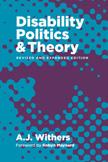
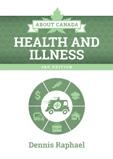
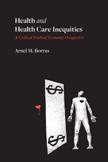


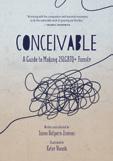
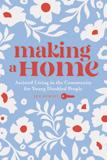

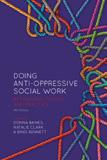






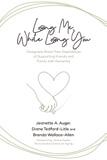
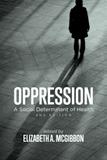
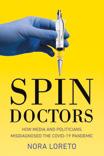
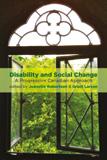
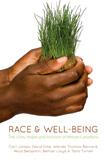

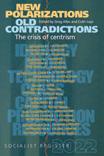
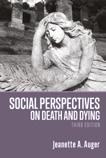

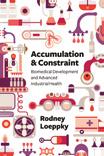
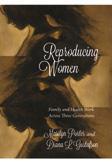

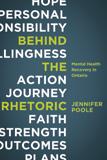
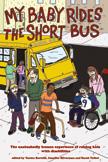
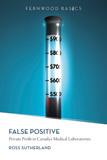
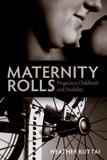
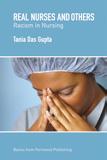

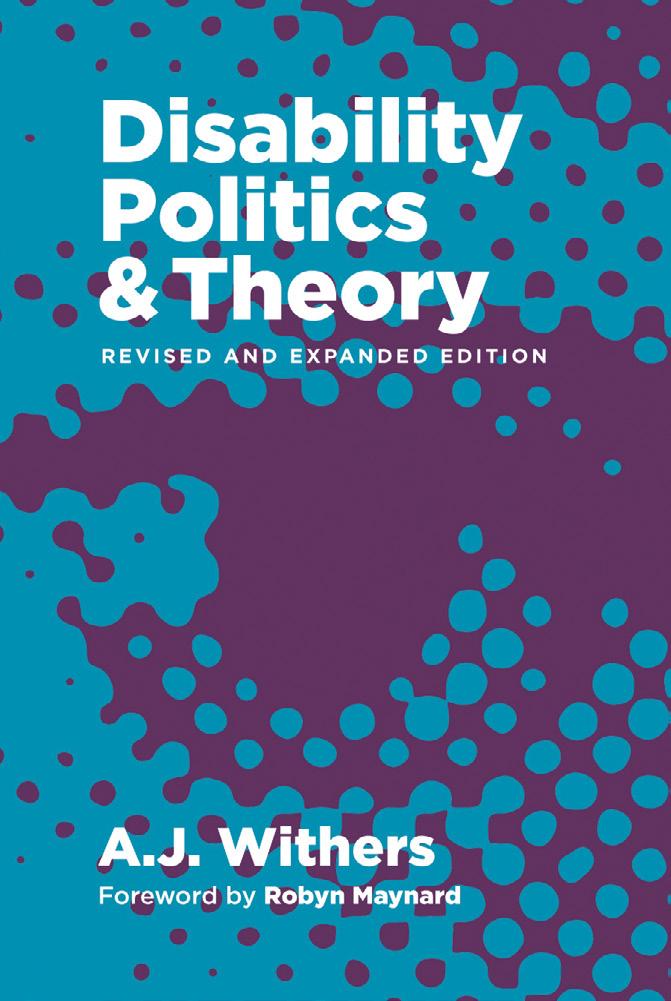
Paperback • 9781773635675
$29.00 • May 2024
Digital Format • $28.99
6 x 9" • 200 pages • Rights: World subject categories
social science / People with Disabilities
social science / Social Work
social science / Diseases & Health issues




































Paperback • 9781773635675
$29.00 • May 2024
Digital Format • $28.99
6 x 9" • 200 pages • Rights: World subject categories
social science / People with Disabilities
social science / Social Work
social science / Diseases & Health issues
by A.J. Withers foreword by Robyn Maynard
This is a book written for action- whether the action is debating it and with it, learning and unlearning, being angry, getting messy, sharing with others, building community or organizing.
—Liat Ben-Moshe, is a disability scholar and assistant professor of criminology, Law, and Justice at the University of Illinois at Chicago.
Disability oppression is not simply about making people disabled by not accommodating impairment; it is interlocked with capitalism, cisheteropatriarchy, colonialism and racism.
key content highlights
Building Models and Constructing Disability • Constructing Difference, Controlling Deviance: The Eugenics Model • Diagnosing People as Problems: The Medical Model • Being Pushed into Normalcy: The Rehabilitation Model • For Us, Not with Us: The Charity Model • Revolutionizing the Way We See Ourselves: The Rights and Social Models • Looking Back but Moving Forward: The Radical Disability Model and Disability Justice
Disability Politics and Theory, a historical exploration of the concept of disability, covers the late nineteenth century to the present, introducing the main models of disability theory and politics: eugenics, medicalization, rehabilitation, charity, rights and social and disability justice. A.J. Withers examines when, how and why new categories of disability are created and describes how capitalism benefits from and enforces disabled people’s oppression. Critiquing the currently dominant social model of disability, this book offers an alternative. The radical framework Withers puts forward draws from schools of radical thought, particularly feminism and critical race theory, to emphasize the role of interlocking oppressions in the marginalization of disabled people and the importance of addressing disability both independently and in conjunction with other oppressions. Intertwining theoretical and historical analysis with personal experience, this book is a poignant portrayal of disabled people in Canada and the US — and a call for social and economic justice. This revised and expanded edition includes a new chapter on the rehabilitation model, expands the discussion of eugenics and adds the context of the growth of the disability justice movement, Black Lives Matter, calls for defunding the police, decolonial and Indigenous land protection struggles, and the COVID-19 pandemic.
a.j. withers organized with the Ontario Coalition Against Poverty for over 20 years, including as a paid organizer. They are the author of Fight to Win: Inside Poor People’s Organizing, A Violent History of Benevolence: Interlocking Oppression in the Moral Economies of Social Working and numerous other articles and book chapters. They are the Ruth Wynn Woodward Jr. Chair in Gender, Sexuality and Women’s Studies at Simon Fraser University.
politics of health; political economy of health; wellness; oppression and illness; racialized illness; discrimination and illness; patriarchy and illness; medical control; eugenics; medical diagnosis; rehabilitation; movement

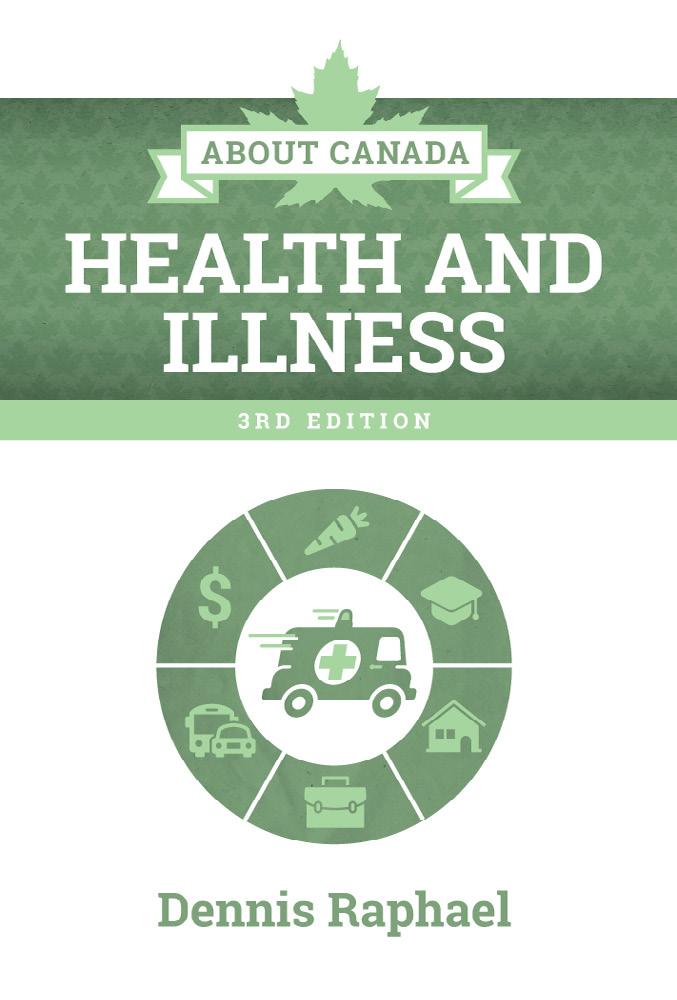
by Dennis Raphael
Paperback • 9781773636603
$20.00 • May 2024
Digital Format • $19.99
Inequality, discrimination and oppression make us sick. Collective caring will go further in making us healthy than “wellness lifestyles”: the rich are getting richer, the rest of us are getting sick.
Living a long, healthy life is one obvious goal of pretty much all of us. We are told, over and over, to change our “lifestyles” and accept that if we become ill, we have likely brought it on ourselves. Yet, hundreds of studies, over the past four decades, tell the real story: the living and working conditions we experience every day play a determining role in our health. How income and wealth, housing, education and adequate food are distributed, whether or not we are employed, and the working conditions we experience — not medical treatments nor so-called wellness lifestyles — determine whether we stay healthy or become ill. These living and working conditions reflect the social inequalities that are associated with social class, gender, race and other social locations in Canadian society.
The third edition of Health and Illness shows how inequitable distribution of the social determinants of health are determined by public policy decisions. Dennis Raphael updates information that connects health and illness to the worsening levels of inequality in Canada. This edition also includes a chapter on the social determinants of who got sick and died from COVID-19. The experiences during the COVID-19 pandemic make the clear case that we need to restructure work and living conditions through public policy that more equitably distributes economic resources. It is only through such actions that we will be able to promote the health of Canadians and prevent illness in an effective manner.
The about canada series is an accessibly written and affordable collection of books that explore cultural and political issues that are central to our Canadian identity.
dennis raphael is a professor at the School of Health Policy and Management at York University. He is the editor of Social Determinants of Health: Canadian Perspectives, Tackling Health Inequalities: Lessons from International Experiences and Immigration, Public Policy, and Health: Newcomer Experiences in Developed Nations. He is author of Poverty in Canada: Implications for Health and Quality of Life, co-author of The Politics of Health in the Canadian Welfare State and co-editor of Staying Alive: Critical Perspectives on Health, Illness and Health Care.
politics of health; political economy of health; wellness; discrimination and illness; oppression and illness; racialized illness; patriarchy and illness; poverty and illness


by Arnel M. Borras
Uncovers the root causes of health and health care inequities, including unequal wealth and power among policy advocates, the dominance of big business and neoliberal state policies.
What sets this work apart is its explicit argument that capitalism, integrally imbricated with (neo)colonialism, racism and sexism, is the fundamental driver of health and healthcare inequalities. The book provides an in-depth examination of these inequities, delving into the interplay between power dynamics, policy advocacy, evidence-based research and political economy. It uniquely integrates document and interview data to critically analyze how inequalities related to class, race, ethnicity and gender contribute to health inequities. By exploring the roles of various social systems — economic, political, cultural, and institutional — the book exposes the complex mechanisms perpetuating these disparities. It challenges prevailing narratives by advocating for socialist-oriented solutions, offering a distinctive perspective compared to other literature in the field. The book presents complex concepts in an understandable manner, making the issues of health inequities and social justice approachable for non-specialists. It is essential reading for those seeking real answers and new directions in dealing with health inequalities.
Arnel M. Borras is an assistant professor at the Rankin School of Nursing, St. Francis Xavier University. Arnel’s professional journey reflects his dedication and resilience, beginning with his family’s immigration to Canada in 2008. Starting as a factory labourer, he transitioned into health care, serving as a personal support worker, registered practical nurse and registered nurse.
capitalism; work; health; welfare state systems; neoclassical; Keynesian; trade unions; Marxist; nexus of capitalism; racism; sexism colonialism; health divide

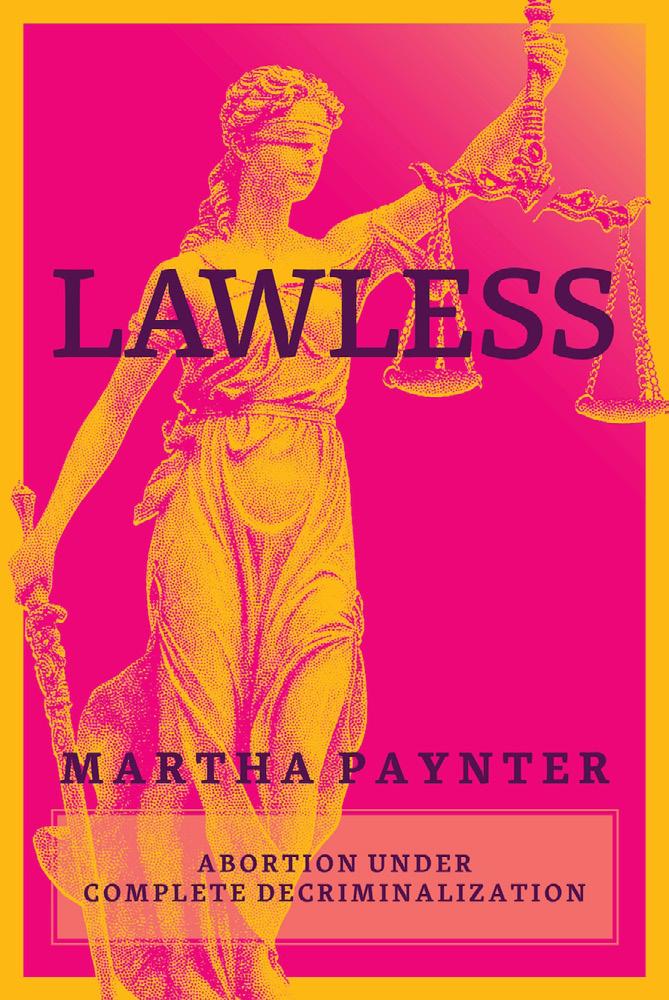
Paperback • 9781773637501
$30.00 • Forthcoming September 2025
Digital Format • $29.99
6 x 9" • 224 pages • Rights: World subject categories
Social Science / Abortion & Birth Control
Medical / Social, Ethical & Legal Issues
Health & Fitness / Women's Health
Medical / Reproductive Medicine & Technology
Martha Paynter
Nurse and scholar Martha Paynter explains how abortion is governed in Canada — without an abortion law — and why experts advocate against one.
Canada is the only country with complete decriminalization of abortion: no gestational duration limitations, no parental consent obligations, and no waiting periods. In recent years, other countries (New Zealand, Colombia, Uruguay, Mexico) have made strides toward this, while the United States has notoriously lost ground. Amidst the tumult, nurse and scholar Martha Paynter uses historical context and contemporary issues to explain why experts advocate against laws governing abortion. Despite decriminalization, Canadian federal and provincial legislation and regulations about health funding, delivery, and human rights all shape how abortion care is delivered. Barriers persist in uneven access, unclear information, and belief-based denial of care. In accessible plain language from the expansive perspective of a clinician, researcher and activist, Paynter describes abortion policy, practice and experience and discusses how to resolve challenges that continue more than three decades after Canada became the world's most legally progressive jurisdiction for abortion.
Key Content Highlights
Decriminalized Abortion
• What Is Abortion?
• With Laws
Come Limits
• Defining Miscarriage, Stillbirth and Infant Death
• The Mifepristone Revolution • Belief-Based Denial of Care
• Crisis Pregnancy Centres • Freedom of Expression and Assembly
• Expansion of Care
• Children and Youth
• Contraception • International Law
Also from this author
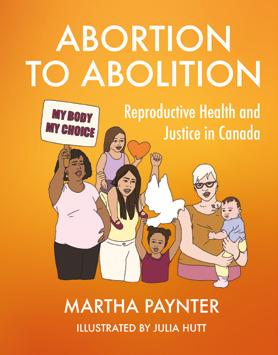
Martha Paynter is recognized internationally for her expertise at the nexus of reproductive and prisoner health. She is an assistant professor in the University of New Brunswick Faculty of Nursing; director of nursing research for the Contraception and Abortion Research Team; affiliate scientist for the Reproductive Options and Services (ROSE) Clinic at Nova Scotia Health; member of the Dalhousie University Health Law and Justice Institute; and founder and past chair of Wellness Within: An Organization for Health and Justice. She is the author of Abortion to Abolition: Reproductive Health and Justice in Canada
Mifepristone; Mifegymiso; bodily autonomy; Planned Parenthood; contraception; Plan B; crisis pregnancy centres; Dobbs v. Jackson Women’s Health Organization; Roe v. Wade; gestational duration; Canada Health Act; pharmacare


by Agnes R. Pascal
I am in awe of the humility, courage, insight, and gratitude in every story here.
—Richard van camp, author of Gather
Prioritizing the voices of northern and Indigenous cancer patients is critical for ensuring positive change within the Northwest Territories healthcare system. The inner strength of patients and the insights they share, are a gift to us all.
—Dr. Stephanie Irlbacher-Fox, scientific director at Hotıì ts’eeda
This is a true exposé of the hardships that northerners experience, simply trying to access good healthcare.
—Dr. Crystal Gail Fraser, University of Alberta
Firsthand narratives from cancer survivors and caregivers offer compassionate advice and analysis about healthcare and hope.
A cancer diagnosis can be life-changing for anyone, bringing new physical and emotional realities, changed relationships and often frustrating administrative burdens when dealing with health systems. But living north of sixty means dealing with a higher level of healthcare inequity. Agnes Pascal compiles firsthand narratives from Northern and Indigenous cancer survivors and caregivers from across the beautiful landscape of the Northwest Territories that illuminate the unique challenges of healthcare accessibility in the North. They discuss fear, grief and death; the logistics of medical travel for treatment; Indigenous and Western medicine; structural determinants of health, including industrial pollution and environmental racism; and the impacts of residential schools and “Indian hospitals” on Northern communities. This book is for people with cancer and their caregivers; health policy makers and advocates; scholars and practitioners of healthcare, Indigenous governance or environmental racism; and anyone interested in grassroots, community-based peer support.
Agnes Pascal, Tetlit Gwich’in, is originally from Fort McPherson, Northwest Territories. She was custom adopted by her Jijii (grandfather) Ronnie and Jijuu (grandmother) Laura Pascal at birth. Her Jijii died of cancer a year and half later. She lives in Inuvik, where she founded the Inuvik Cancer Support group in 2018 after being diagnosed with breast cancer. Agnes sees her upbringing, community and family as her strengths. She’s a mom to three young adults.
radiation; chemotherapy; Inuvik; support group; Yellowknife; Edmonton; spirituality; Dene; Inuvialuit; Nunavut; territorial government; Northwest Territories; NTHSSA; HRHSSA; Mackenzie River; Hay River; Tłįchǫ

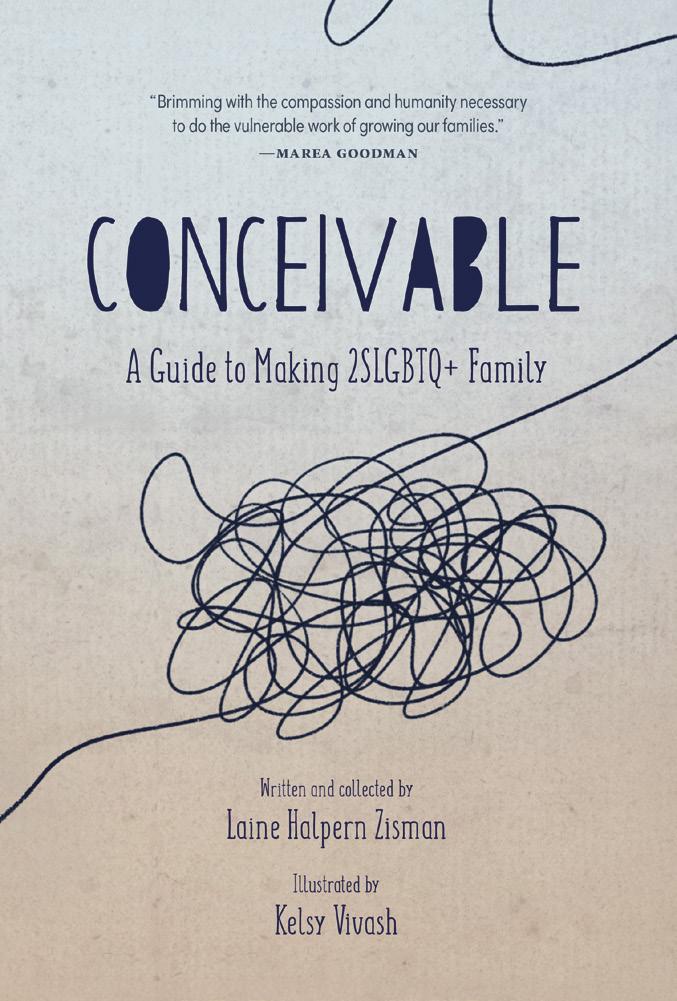
by Laine Halpern Zisman illustrated by Kelsy Vivash
This book is the perfect companion on your family-building journey…a choose-your-own adventure with practical information and historical context, but most importantly, brimming with compassion and humanity that is so necessary as we do the vulnerable work of growing our families.
—Marea Goodman, LM, CPM, co-author of Baby Making for Everybodys
Conceivable seamlessly weaves together research, soothing, and queer joy. It’s like having a supportive friend — with amazing insights — walking alongside you, every step of the way.
—Olivia Scobie, author of Impossible Parenting Request Exam Copy
Family & Relationships / LGBTQ+ Health & Fitness / Fertility & Infertility Health & Fitness / Pregnancy & Childbirth
key content highlights Barriers to Care and Obstacles for Equity • Building Communities, Strategies for Care • Finding a Donor • Choosing a Clinic • Choosing a Method • What’s Next?
You are creating your family. You may not know how (or with whom) quite yet, but you are on your way.
Conceivable moves beyond the birds and the bees to consider the politics, challenges, choices and opportunities for agency and joy involved in 2SLGBTQ+ fertility, conception and family building in Canada. With contributions from healthcare workers, mental health professionals and support people in the field of reproductive health and 2SLGBTQ+ sexual care, this book is an honest and thorough look at growing your family.
Conceivable is for birthing parents, non-gestational parents, families seeking a surrogate or donor, and those who do not yet know what they need. With illustrations, worksheets and activities to help you think about the intimate questions of communication, relationship building and community, this guide will prepare you with the knowledge you need to navigate advocacy, rights and regulations. interested in grassroots, community-based peer support.
Laine Halpern Zisman is a postdoctoral fellow at the School of Public Health and Social Policy at the University of Victoria and a lecturer at the University of Toronto. Her work moves through the intersections of 2SLGBTQ+ equity, culture and reproductive care. She is a certified fertility support practitioner and family building educator, helping people navigate all stages of their perinatal journeys. She has published two collected volumes, Women and Popular Culture in Canada and the second edition of Queerly Canadian, co-edited with Scott Rayter.
queer and transgender health; LGBTQ+ fertility; sperm donor; LGBTQ+ reproduction; reproductive justice; assisted reproductive technologies (ART); queer pregnancy; fertility-industrial complex; LGBTQ2S+ community; surrogacy


Paperback • 9781773635958 $24.00 • May 2023
5.5 x 8.5" • 136 pp • Rights: World
by Jen Powley
This book documents Powley’s fight for young disabled people to live in the community rather than being institutionalized in nursing homes.
In some Canadian provinces, people with severe physical disabilities are simply warehoused in nursing homes, where many people, especially in the age of homecare, are in the final stages of their lives. It is difficult for a young person to live in a home geared for death; their physical assistance needs are met, but their social, psychological and emotional needs are not. Jen Powley argues that everyone deserves to live with the dignity of risk.
In Making a Home, Powley tells the story of how she got young disabled people like herself out of nursing homes by developing a shared attendant services system for adults with severe physical disabilities. This book makes a case for living in the community and against dehumanizing institutionalization.
jen powley was born in Alberta, moved to Halifax for university and stayed. An author by circumstance, she wrote Just Jen: Thriving Through Multiple Sclerosis, which won the 2018 Margaret and John Savage First Time Author Nonfiction Book Award. Powley has completed a BA and an after degree in journalism, as well as an MFA in Creative Non-Fiction at the University of King’s College.
health and illness; homecare; assisted living; progressive multiple sclerosis; assisted sex; independent living; nursing home; severe physical disabilities; medical assistance in dying; partner surrogacy


Paperback • 9781773635910
$20.00 • April 2023
Digital Format • $19.99 5 x 7" • 176 pp • Rights: World subject categories health and fitness / Oral Health medical / Dentistry / General medical / Health Policy
content highlights The Struggle for Oral Health • The Structure of Dental Care • The History of Dental Care in Canada • Public Dental Programs • Benefitting from the Status Quo • The Future of Dental Care in Canada
by Brandon Doucet
This book should be essential reading for policy-makers and anyone in the health care field — the reader cannot help but conclude that the status quo for dental care in Canada is completely indefensible.
—dr melanie bechard (md, mph, frcpc), chair, Canadian Doctors for Medicare
Doucet’s extraordinary knowledge of dentistry is matched only by his care and compassion for patients. He pulls back the curtain on a highly privatized system of corporate dentistry that has created significant inequalities in access to care, and has become a leading figure in the political campaign to establish Canada’s first national public dental care system.
—steven staples, national director of policy & advocacy, Canadian Health Coalition
Dental care in Canada is for those who can afford it. What will it take to make oral healthcare free?
Dental care is excluded from Canada’s universal healthcare system, with services provided based on the ability to pay. Our dental-care system is leading large segments of the population to neglect care, resulting in poor oral health and all of its consequences. This book examines the history of dentistry in Canada, demonstrating how private business interests have prevailed over public health. Current trends in the industry, such as corporate ownership and a focus on cosmetic dentistry, continue this history. But change is possible. By examining alternative approaches to the current dental-care system, this book is a call to action to make a healthier future possible.
The about canada series is an accessibly written and affordable collection of books that explore cultural and political issues that are central to our Canadian identity.
dr. brandon doucet is a dentist practising in Nova Scotia, with interests in surgery and public health, and is the founder of the Coalition for Dentalcare.
dentistry; dental hygiene; dental therapy; nursing; oral public health; gerontology; epidemiology; political economy of health; public policy; health policy


Paperback • 9781773635552
$55.00 • November 2022
Digital Formats • $54.99
6.75 x 9.25" • 378 pp • Rights: World
edited by Donna Baines, Natalie Clark and Bindi Bennet foreword by Raven Sinclair (Ótiskewápíwskew)
This book provides salutary reminders of having social work’s commitment to equality and valuing diversity observed and enhanced not only in Canada/Turtle Island, but more widely throughout the world to live up to its espoused ideals.
—lena dominelli, University of Stirling
I have loved teaching from this book. This new edition, once again, demonstrates how a conceptually informed approach to exclusion and marginalization is the unique framework that social work contributes to helping practices and social transformation.
—sarah todd, Carleton University
This book continues the strong tradition of three editions of Doing Anti-Oppressive Practice but adds new issues and cutting-edge critical reflection of AOP.
subject categories
social science / Social Work
social science / Human Services
key content highlights
Perseverance, Determination and Resistance • Understanding the State • Cultural Humility and Work with Aboriginal LGBTQI+ • Seeing Low Income Single Moms • Working in the Context of Trauma and (dis) Ability • Unmapping Standardized Assessments • Bridging the Activist-Practice Divide • Re-Imagining Social Work Resistance Through the Resistance of the Below • Indigenous Pathways to Anti-Oppressive Practice • Anti-Black Racism, Bio-Power and Governmentality: Deconstructing the Suffering of Black Families Involved with Child Welfare • Connecting Anti-Oppressive Social Work Practice to a Social Oppression Model of Disability • Gender-Affirming Care in Canada • Anti-Oppressive Social Work with Older Adults • Approaches to Healing with Secwépemc Children and Youth • Black Canadians and Anti-Oppressive Social Work
Doing Anti-Oppressive Social Work brings together critical social work authors to passionately engage with pressing social issues and to pose new solutions, practices and analysis in the context of growing inequities and the need for reconciliation, decolonization and far-reaching change. This edition foregrounds the voices of those less heard in social work academia to provide cutting-edge critical reflection and skills, including social work’s relationship to the state and social work’s responsibility to individuals, communities and its own ethics and standards of practice. Indigenous, Black, racialized, transgender, (dis)Ability and allied scholars offer identity-engaged and intersectional analyses on a wide range of issues facing those working with intersectional cultural humility, racism and child welfare, poverty and single mothers, critical gerontology and older people, and immigrant and racialized families.
donna baines is the director and a professor in the School of Social Work at the University of British Columbia. Her research and teaching interests include anti-oppressive theory and practice, paid and unpaid care work and social justice change.
natalie clark has interconnected identities, including settler, Secwepemc and Métis kinship. She is a full professor and co-chair of the School of Social Work and Human Service at Thompson Rivers University.
bindi bennett is a Gamilaraay cisgender mother, researcher and social worker. She is an associate professor in the Faculty of Health Sciences at Bond University.
colonial; oppression; single moms; lived experience; child welfare; storytelling; trans; gender; anti-Black racism; resistance


by Deborah Stienstra
Now available as an audiobook, narrated by Nathalie Toriel
This second edition explores the historical and current experiences of people with disabilities in Canada, as well as the policy and advocacy responses to these experiences.
Exam Copy
Including people with disabilities fully into Canadian society, with the rights enjoyed by non-disabled people, requires a fundamental social transformation, not simply “fixing” some bodies. It requires deep changes in the attitudes, cultural images and policies that make people with disabilities invisible, set them aside, undermine or reject their contributions and value, and justify their neglect, abuse and death. This shift involves the simple recognition and honouring of the dignity, autonomy and rights of all people, including those who experience disabilities. In the second edition of About Canada: Disability Rights, Deborah Stienstra explores the historical and current experiences of people with disabilities in Canada, as well as the policy and advocacy responses to these experiences. Stienstra demonstrates that disability rights enable people with disabilities to make decisions about their lives and future, claim rights on their own behalf and participate actively in all areas of Canadian society. Disability rights can and do increase access to and inclusion in critical areas like education, employment, transportation, telecommunications and health care.
This project is funded in part by the Government of Canada.
The about canada series is an accessibly written and affordable collection of books that explore cultural and political issues that are central to our Canadian identity.
deborah stienstraw holds the Jarislowsky Chair in Families and Work, is a professor of political science and the director of the Live Work Well Research Centre at the University of Guelph. She held the Royal Bank Research Chair in Disability Studies from 2000-2003 at the Canadian Centre on Disability Studies, and has worked with national organizations including the Canadian Research Institute for the Advancement of Women, the Council of Canadians with Disabilities, the National Action Committee on the Status of Women, fafia and the Canadian Voice of Women for Peace. She is co-editor of Making Equality: History of Advocacy and Persons with Disabilities in Canada and the lead author of Women with Disabilities: Accessing Trade.


Paperback • 9781552666586
$25.00 • May 2014
Digital Format • $24.99
6 x 9" • 176 pp • Rights: World
subject categories
social science / Social Work social science / Indigenous Studies
Colonialism, Indigenous Trauma and Healing
• Joining the Circle: Introducing the Indigenous Practitioners • Indigenous Perspectives on Wellness and Wholistic Healing • Psychiatry and Indigenous Peoples • Indigenous Strategies for Helping and Healing • A Decolonizing Journey
and
by Renee Linklater foreword by Lewis Mehl-Madrona
Drawing on a decolonizing approach, this book explores healing and wellness in Indigenous communities on Turtle Island.
In Decolonizing Trauma Work, Renee Linklater explores healing and wellness in Indigenous communities on Turtle Island. Drawing on a decolonizing approach, which puts the “soul wound” of colonialism at the centre, Linklater engages ten Indigenous health care practitioners in a dialogue regarding Indigenous notions of wellness and wholistic health, critiques of psychiatry and psychiatric diagnoses, and Indigenous approaches to helping people through trauma, depression and experiences of parallel and multiple realities. Through stories and strategies that are grounded in Indigenous worldviews and embedded with cultural knowledge, Linklater offers purposeful and practical methods to help individuals and communities that have experienced trauma.
Decolonizing Trauma Work, one of the first books of its kind, is a resource for education and training programs, health care practitioners, healing centres, clinical services and policy initiatives.
renee linklater, PhD, is a member of Rainy River First Nations in Northwestern Ontario. Her doctoral studies were completed with the Department of Adult Education and Counselling Psychology at the Ontario Institute for Studies in Education of the University of Toronto. Renee has 20 years of experience working with Aboriginal healing agencies and First Nation communities. She has worked across the health and education sectors as a frontline worker, program evaluator, curriculum developer and educator/trainer. Renee is director of Director of Shkaabe Makwa at the Centre for Addiction and Mental Health (camh) in Toronto.
colonialism; resilience; Indigenous knowledge; trauma response; psychiatry; residential school; trauma; dsm


Paperback • 9781773635224
$28.00 • May 2022
Digital Formats • $27.99
6 x 9" • 280 pp Rights: World
edited by Amanda Gebhard, Sheelah McLean and Verna St. Denis
This panoptic collection is a clarion call for Canadians to wake up and dispense, once and for all, with the delusion that Canada is racism free. This is a must-read for students, educators and the general public.
—raven sinclair, University of Regina, and editor of Wicihitowin: Aboriginal Social Work in Canada
Interrogating the relation between the “helping professions” and the production of white racial power, this much-needed work exposes the everyday violence that permeates Canada’s social institutions. An essential and timely book.
—dr. sunera thobani, University of British Columbia
subject categories
social science / Race & Ethnic Relations
social science / Social Work
key content highlights
Living Our Family Through Settler Colonialism • What’s Whiteness Doing in a Nice Field Like Education? • How Indigenous-Specific Racism Is Coached into Health Systems • “Within This Architecture of Oppression, We Are a Vibrant Community” • Tracing the Harmful Patterns of White Womanhood • The School/Prison Nexus in the Canadian Prairies • Indigenous Women and Girls’ Narratives on Police Violence • The Articulations of Settler Colonialism in the Colten Boushie Case • A Conversation on the Complexities of Decolonization in White Universities • Considering Dominance through Racial Constructs and Land Relationships • Unmasking the Whiteness of Nursing • Whiteness of Medicine • Cannibal Culture, Kinship and Indigenous Youth in the Saskatchewan Public School System • White Entitlement in Antiracism and Anticolonialism • Permission to Escape • Queering the Mainstream
A book about the devastating consequences of white supremacy being normalized in the helping professions in Canada.
When working with Indigenous people, the helping professions — education, social work, health care and justice — reinforce the colonial lie that Indigenous people need saving. In White Benevolence, leading anti-racism scholars reveal the ways in which white settlers working in these institutions shape, defend and uphold institutional racism, even while professing to support Indigenous people. White supremacy shows up in the everyday behaviours, language and assumptions of white professionals who reproduce myths of Indigenous inferiority and deficit, making it clear that institutional racism encompasses not only high-level policies and laws but also the collective enactment by people within these institutions. In this uncompromising and essential collection, the authors argue that what’s needed are radical anti-racism, solidarity and a relinquishing of the power of white supremacy.
amanda gebhard is a white settler scholar and assistant professor in the Faculty of Social Work, University of Regina. Amanda’s research investigates racism and educational exclusions, the school/prison nexus and anti-racist pedagogy and practice.
sheelah mclean is a white settler from Treaty 6 Territory. Her research and scholarship address how white dominance is created and maintained within a white settler society.
verna st. denis is a professor of education and special advisor to the president on antiracism/anti-oppression at the University of Saskatchewan. She is both Cree and Métis and a member of the Beardy’s and Okemasis First Nation. Her scholarship is in anti-racist and Indigenous education, and she has published extensively on these topics.
anti-racism; settler colonialism; inequality; human services; nursing; whiteness; white supremacy; institutional racism; solidarity


Paperback • 9781773635149
$32.00 • May 2022
Digital Formats • $31.99 8 x 10" • 200 pp • Rights: World
by Martha Paynter illustrated by Julia Hutt
This critical reading offers insight into Canadian histories of reproductive health access and the manifold violence of Canada’s carceral system, while communicating the vital hope embedded in politics and action at the intersection of reproductive justice and abolition.
—catherine bryan, Dalhousie University
This beautifully illustrated book tells the powerful stories behind the struggles for reproductive health and justice in Canada, celebrating past wins and revealing abolition as a path forward.
social science / Abortion & Birth Control social science / Women's Studies
The history of abortion decriminalization and critical advocacy efforts to improve access in Canada deserve to be better known. Ordinary people persevered to make Canada the most progressive country in the world with respect to abortion care. But while abortion access is poorly understood, so too are the persistent threats to reproductive justice in this country: sexual violence, gun violence, homophobia and transphobia, criminalization of sex work, reproductive oppression of Indigenous women and girls, privatization of fertility health services and the racism and colonialism of policing and the prison system. This beautifully illustrated book tells the powerful true stories behind the struggles to advance reproductive health and justice in Canada, celebrating past wins and revealing how prison abolition is key to the path forward.

Martha Paynter is recognized internationally for her expertise at the nexus of reproductive and prisoner health. She is an assistant professor in the University of New Brunswick Faculty of Nursing; director of nursing research for the Contraception and Abortion Research Team; affiliate scientist for the Reproductive Options and Services (ROSE) Clinic at Nova Scotia Health; member of the Dalhousie University Health Law and Justice Institute; and founder and past chair of Wellness Within: An Organization for Health and Justice. She is the author of Abortion to Abolition: Reproductive Health and Justice in Canada
feminism; women’s health; bodily autonomy; transformative justice; Ewanchuck; reproductive justice; Morgentaler


Paperback • 9781552668252
$18.00 • April 2016
Digital Format • $17.99
5 x 7" • 190 pp • Rights: World
Request Exam Copy
by Pat Armstrong and Hugh Armstrong
This second edition of About Canada: Health Care is an accessible, up-to-date introduction to how the Canadian health care system works, how it is changing and what can be done to make it better.
Health care is Canada’s best-loved social program — and for good reason. For over forty years, Canadians have enjoyed high quality health services based on need rather than on ability to pay. Yet we hear almost daily accounts of problems with the system. We are bombarded with warnings that public health care is unsustainable, especially in light of the baby boomer generation reaching retirement age. Such stories can help undermine our support for public care even though they are often based on poor, partial or even false information. Our best defence of a public system is knowledge about how it works and how it can be improved in order to keep it. This second edition of About Canada: Health Care is an accessible, up-to-date introduction to how the Canadian health care system works, how it is changing and what can be done to make it better. Pat and Hugh Armstrong explain a range of complicated and important questions: What do “public” and “private” mean as they apply to our current health care system and in proposed reforms? As the boomer generation ages, will the growing number of seniors bankrupt Medicare? Who pays for drugs and how can we ensure Canadians have equitable access? Can technologies significantly improve care and reduce costs?
The about canada series is an accessibly written and affordable collection of books that explore cultural and political issues that are central to our Canadian identity.
Why Care? • How Did We Get Here? • What Did We Get?
Primary Care
• What Did We Not Get?
• Reforming
• What Are the Main Issues Today? • Privatization Threats • Strategies for Change
pat armstrong is a partner in the National Network on Environments and Women’s Health and chairs a working group on health reform at the Centres of Excellence for Women’s Health. She is also a site director for the Ontario Training Centre in Health Services and Policy Research. Pat is co-author or editor of numerous books on health care including Exposing Privatization: Women and Health Care Reform in Canada.
hugh armstrong is a professor in the School of Social Work and in the Institute of Political Economy at Carleton University. He serves on the board of directors for the Council on Aging of Ottawa and on the Community Advisory Committee of the Ottawa Hospital.
primary care; privatization; aging; wait-time; labour shortage; care reform; medicare; pharmacare; long-term care


Paperback • 9781773635545
$28.00 • October 2022
Digital Format • $27.99
6 x 9" • 264 pp • Rights: World
by Baijayanta Mukhopadhyay
Now available as an audiobook, narrated by Natalie Robitaille
This book not only reveals how infections of the past have shaped our present, it causes us to rethink our understanding of disease, colonization, togetherness and care. Mukhopadhyay’s voice has the insight of a health worker woven with the beauty of a poet, tying the personal and historical into a riveting work.
—christa couture, author of How to Lose Everything
A reflection for our times that demystifies medicine as a tool of power. We are in need of decolonizing western knowledge, and the humble critique in Country of Poxes points to opportunities to heal our world with solidarity.
—erika arteaga, activist for the right to health, co-coordinator of the People's Health Movement Ecosystems and Health circle
This story of land theft through the course of three diseases exposes how colonialism facilitates illness and profits from it.
Country of Poxes is the story of land theft in North America through three infectious diseases — syphilis, smallpox and tuberculosis — and reveals how medical care, widely considered a magnanimous cornerstone of the Canadian state, developed in lockstep with colonial control over Indigenous land and life.
subject categories
health & fitness / Contagious Diseases
history / Indigenous Peoples of the Americas
key content highlights
Pandemics Past: How Infections Have Defined Humanity • Syphilis • Smallpox • Tuberculosis • Fevers Future: How We Respond to Infections to Come
The 500-year-old debate over the origins of syphilis reflects colonial judgements of morality and sexuality that became formally entwined in medicine. Smallpox is notoriously linked with the project of land theft, as colonizers destroyed Indigenous land, economies and life in the name of disease eradication. And tuberculosis, considered the “Indian disease,” aroused intense fear of contagion that launched separate systems of care for Indigenous Peoples in a de facto medical apartheid, while white settlers retreated to be cured. This immersive and deeply reflective book provides riveting insights into the biological and social relationships of disease and empire.
baijayanta mukhopadhyay is a Bengali settler living in Tio’tia:ke for over two decades. A family doctor who serves primarily in Eeyou Istchee, Baijayanta also works in Treaty 3 and 9 territories, as well as with undocumented migrants, unhoused people and queer/trans youth in the city. He is clinical faculty at the McGill Department of Family Medicine, focusing on supporting rural/low-resource practice. His previous works include A Labour of Liberation and essays in Briarpatch Magazine, Sarai Reader and Upping the Anti.
infectious diseases; medicine; healthcare; Indigenous health; empire; land theft; epidemics; history; covid-19; tb

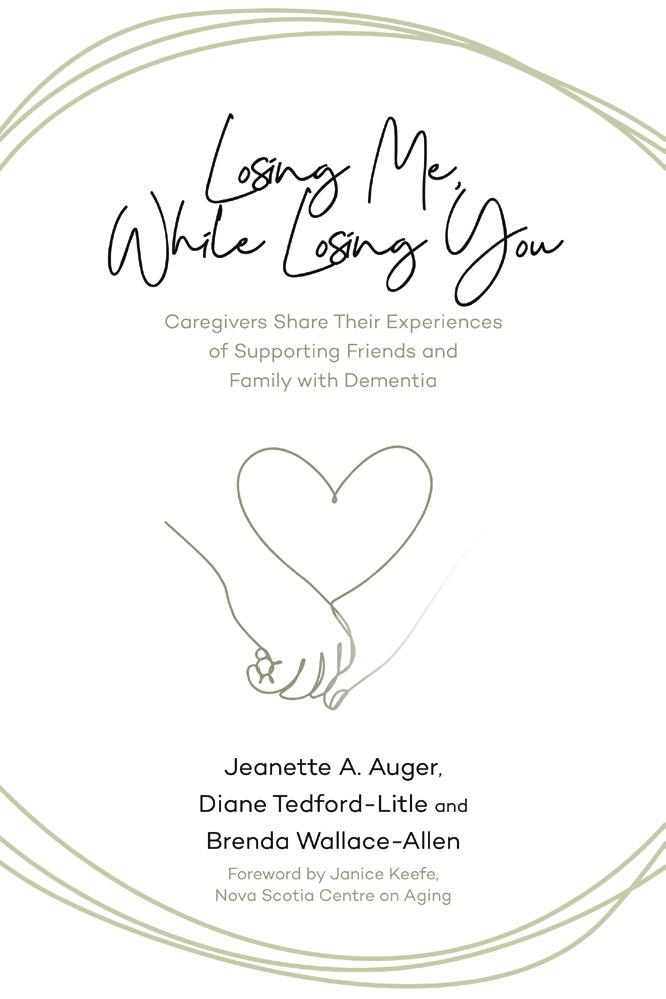
Paperback • 9781773634845
$30.00 • September 2021
Digital Format • $29.99
6 x 9" • 224 pp • Rights: World
Request Exam Copy
subject categories
health & fitness / Alzheimer's & Dementia medical / Caregiving
by Jeanette A. Auger, Diane Tedford-Litle and Brenda Wallace-Allen foreword by Janice Keefe
Now available as an audiobook, narrated by Vickie Papav
Methodology • Relations with People with Dementia • Caregiver Strategies
This book provides narrative accounts based on interviews with caregivers of people with dementia and Alzheimer’s disease.
Losing Me, While Losing You is a long-needed resource to those providing care for people living with dementia — and for those providing care to the caregivers. In this book, caregivers speak from their own experiences of caring for loved ones with dementia; they cover when they first noticed behavioural changes, what they did and how their roles changed when they received the diagnosis, how the experiences changed their perceptions of themselves, especially in cases where important ones no longer recognized them or their, often long-standing, relationships. The caregivers also talked about what resources, if any, were available to support them through the caregiving journey and what recommendations they would make to government policymakers and to others in similar situations. This book is unique in that it documents the personal lived experience of loss which family, friends and caregivers go through as their roles, expectations and images of self are changed throughout the caregiving process.
jeanette a. auger is a professor emeritus and adjunct professor in the Department of Sociology at Acadia University.
diane tedford-litle is a women’s activist and former palliative care volunteer with the Victorian Order of Nurses in Nova Scotia. She has volunteered with a number of organizations including the Seniors Network, the Hospice Consultation Committee and the Gerontology Association of Nova Scotia.
brenda wallace-allen is an instructor at Nova Scotia Community College.
health care; dementia; caregivers; covid-19; loss; interview; caregiving journey; Alzheimer’s; lived experience; caregiver strategies


Paperback • 9781773632285
• April 2021
by Elizabeth McGibbon
The author has produced an excellent work that offers an accurate depiction of power relations as they relate to health from a paradigm consistent with many in the field of the social determinants of health, especially health promoters. It would be beneficial if more health professionals, students and members of the public alike became aware of the critical thinking present in this book.
—lexy
smith-doughty, College Quarterly
This book provides clear and solution-focused evidence about how public policy–created oppression gets “under the skin” to threaten health, increase health inequities and cause early death.
subject categories
social science / Social Classes & Economic Disparity social science / Diseases & Health Issues
In the current environment, it is urgent to understand how oppression and health are closely connected. Oppression: A Social Determinant of Health offers a thorough and accessible overview of the root or structural causes of ill health, such as capitalism, globalization, colonialism, medicalization and neoliberalism. The contributors to this volume insist that the key to tackling these structural forces is understanding and changing oppressive practices that cause ill health, thus reframing growing health inequities within the scope of moral responsibility and social change. This thoroughly updated second edition contains contributions from internationally recognized experts in the field of critical social science analyses in health systems and health sciences studies.
New chapters provide timely discussions about oppression, Treaty Rights, Big Pharma, the Anthropocene and the covid-19 pandemic. This book provides a comprehensive overview of core ideas for investigating how oppression “gets under the skin” to perpetuate health inequities.
Politicizing Health: Overview of How Oppression is a Social Determinant of Health
• Introduction to Oppression: A Social Determinant of Health • People and Planet Under Threat: Health Impacts of Oppression • Raising the Volume on the Social Determinants of Health in Canada and Elsewhere • Oppression in the Everyday: How Oppression Operates to Promote and Sustain Health Inequities • The Racialization of Oppression • Oppression and the Health of Indigenous Peoples • Social Exclusion as a Determinant of Health • Oppression and Im/migrant Health in Canada
• The Politics of Mental Health: Pathologizing the Impacts of Injustice • Imperatives for Structural Change: Belling the Cat • Oppression: Redistributive Politics and Public Policy
• Obsessed by Profits: Big Pharma and the Corruption of Health • Aboriginal Peoples’ Constitutional Right to Health • Oppression and the Political Economy of Health Inequities • Human Rights and Health • COVID-19: Oppressions Laid Bare
Teaching Learning Guide and Action Toolkit available upon request
elizabeth mcgibbon is a professor in the Faculty of Science at St. Francis Xavier University. Her publications describe how public policy–created oppression deepens disadvantage and heightens privilege to create and sustain intergenerational health damage. An invited author in eight multiple edition books about critical applications in health, she co-authored the first Canadian book to tackle health care racism: Anti-Racist Health Care Practice.
health impacts; Canada; inequalities; racialization; Indigenous Peoples; injustices; social exclusion; mental health; immigration; covid-19


Paperback • 9781773634876
$35.00 • November 2021
Digital Format • $34.99
6 x 9" • 368 pp • Rights: World
by Nora Loreto
In this remarkable, deft analysis, Loreto pulls no punches and uncovers truths from multiple angles—narrating an all-too-real story of ill-prepared politicians, a panicked population and Canadian journalism’s complicated response to the story of a lifetime.
—niigaan sinclair, Winnipeg Free Press columnist and associate professor, University of Manitoba
A clear-eyed retrospective of Canada’s handling of the COVID-19 pandemic that confronts our focus on protecting capital at the expense of protecting people. Loreto’s comprehensive analysis offers an invaluable reckoning that makes it an essential read.
—shree paradkar, Toronto Star columnist
This book meticulously documents the root causes of the struggles amplified by the pandemic and media and challenges media and politicians who justify the status quo.
subject categories
political science / Media & Internet political science / Canadian
key content highlights
March – The Pandemic Emerges • April – Disaster in Residential Care • May – COVID-19 Hits Food Processing Industries • June – Systemic Racism and COVID-19 Spread • July – The Lie of Personal Responsibility • August – The End of CERB • September – Back to School in the COVID-19 Era • October – Migrant Workers and COVID-19 Outbreaks • November – The Race for the Vaccine • December – The Gendered Impact • January – Disability Erased and Distorted • February – The Disaster of Workplace Spread • March – One Year in Media Cuts • Canada after COVID-19
As Canada was in the grips of the worst pandemic in a century, Canadian media struggled to tell the story. Newsrooms, already run on threadbare budgets, struggled to make broader connections that could allow their audience to better understand what was really happening, and why. Politicians and public health officials were mostly given the benefit of the doubt that what they said was true and that they acted in good faith.
This book documents each month of the first year of the pandemic and examines the issues that emerged, from racialized workers to residential care to policing. It demonstrates how politicians and uncritical media shaped the popular understanding of these issues and helped to justify the maintenance of a status quo that created the worst ravages of the crisis. Spin Doctors argues alternative ways in which Canadians should understand the big themes of the crisis and create the necessary knowledge to demand large-scale change.
nora loreto is a writer and activist from Quebec City. She is the author of Take Back the Fight: Organizing Feminism in the Digital Age and From Demonized to Organized: Building the New Union Movement. Nora is the editor of the Canadian Association of Labour Media and is an opinion columnist whose writing appears regularly in many publications. She co-hosts the popular podcast Sandy and Nora Talk Politics with Sandy Hudson.
awards: 2022
Short-listed, Quebec Writers Federation
Mavis Gallant Prize for Nonfiction
covid-19; journalism; politics; racism; capitalism; public health; racialized workers; crisis; residential care; CERB; pandemic; media


Paperback • 9781552668139
$30.00 • May 2016
Digital Format • $29.99
6 x 9" • 250 pp • World
edited by Jeanette Robertson and Grant Larson
This edited collection uses a critical theory perspective and draws on expertise from a range of contemporary policy and practice areas. Contributors include people with disabilities, family members, researchers, academics and practitioners. This book is an ideal text for students of social work, human services, child and youth care and disability studies. Chapters include first-person accounts from persons with disabilities, perspectives of families and historical perspectives, as well as a critical exploration of demographics, human rights issues, disability legislation and policy in Canada, theoretical approaches to disability, intersectionality and disability, Aboriginal people and disability, mental health disability, principles of anti-ableist practice, advocacy and strategies for change.
This book offers as a fresh Canadian perspective on disability from a critical lens, challenging and inspiring students and practitioners alike to think outside the box and to examine their own attitudes and values toward disability, ensuring that they do not inadvertently impose ableist and oppressive practices on one of Canada’s most marginalized populations.

Paperback • 9781552663547
$26.00 • March 2010
6 x 9" • 216 pp • Rights: World
by Akua Benjamin, David Este, Carl James and Bethan Lloyd
Through in-depth qualitative and quantitative research with African Canadians in three Canadian cities — Calgary, Toronto and Halifax — this book explores how experiences of racism, combined with other social and economic factors, affect the health and well-being of African Canadians. With a special interest in how racial stereotyping impacts Black men and boys, this book shares stories of racism and violence and explores how experiences and interpretations of, and reactions to, racism differ across a range of social and economic variables. Rejecting the notion that Black communities are homogeneous, this book gives a detailed examination of three distinct communities: Caribbean, immigrant African and Canadian Black. The authors also explore how individuals, families and communities can better understand and challenge racism.


Paperback • 9781773632063
$25.00 • March 2019 Digital Format • $24.99
6 x 9" • 148 pp • Rights: World Request
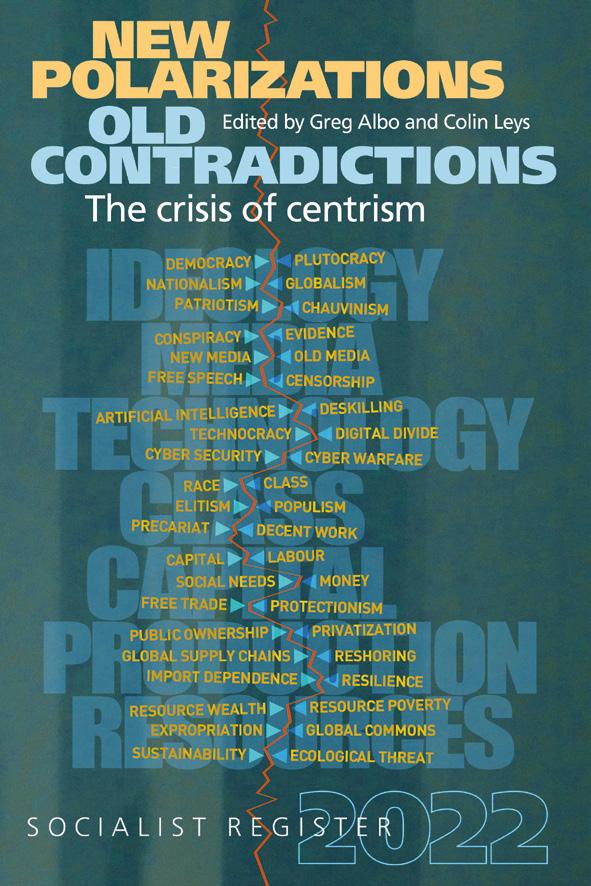
Paperback • 9781773634890
$36.00 • December 2021
6 x 9" • 344 pp • Rights: Canada
by Garry Leech
In this sensitive personal narrative, war correspondent Garry Leech reveals the torment of this frightful ailment and the horrors he witnessed in Latin America … A gripping tale of savagery and terror, but also of tenderness, compassion and renewal.
—noam chomsky
Garry Leech weaves his own raw experiences together with clinical understandings from today’s leading PTSD researchers and writers. As such, this book may be helpful for his fellow war correspondents as well as military veterans, accident victims and survivors and witnesses of abuse and violence.
—emily bushell, counselling therapist
What are the long-term psychological costs of violence and war? Journalist Garry Leech draws from his experiences as a war correspondent, his ongoing personal struggle with PTSD and the latest research on this mental illness to provide a powerful and vivid answer to this question. For thirteen years, Leech worked in Colombia’s rural conflict zones where he experienced combat, witnessed massacre sites and was held captive by armed groups. This raw account of his journey from war on the battlefield to an internal, psychological war at home illustrates how those who work with traumatized populations can themselves be impacted by trauma. Leech removes some of the stigmas, fears and ignorance related to PTSD in particular, and mental illness in general, by shedding light on a largely invisible illness that mostly manifests itself behind the closed doors of our homes. Ultimately, the book uses a journalist’s journey through PTSD to provide a message of hope for all those who suffer from this illness.
edited by Greg Albo, Leo Panitch and Colin Leys
The 58th annual volume of the Socialist Register takes up the challenge of exploring how the new polarizations relate to the contradictions that underlie them and how far "centrist" politics can continue to contain them. Original essays examine the multiplication of antagonistic national, racial, generational and other identities in the context of growing economic inequality, democratic decline and the shifting parameters of great power rivalry. Where, how, and by what means can the left move forward?

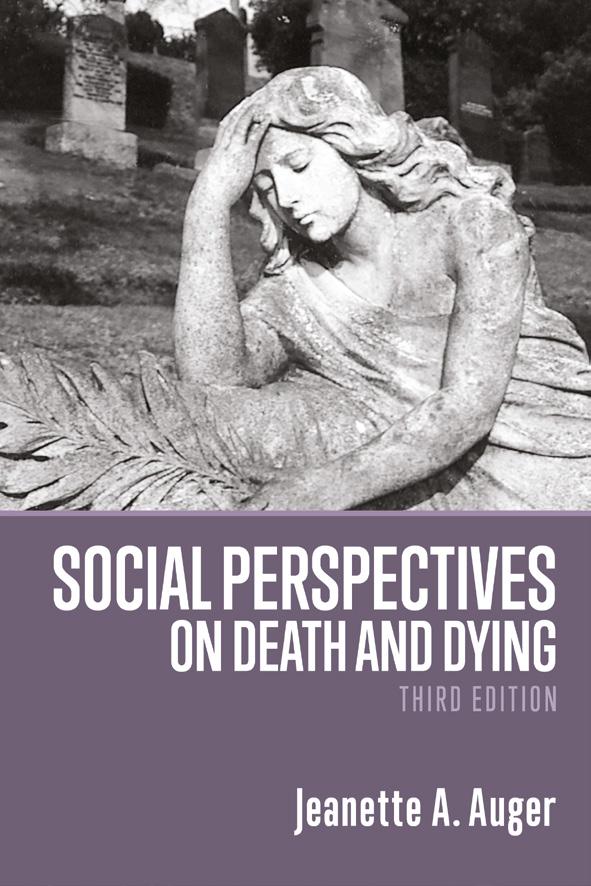
by Jeanette A. Auger
Death is inevitable, but our perspectives about death and dying are socially constructed. This updated third edition takes us through the maze of issues, both social and personal, which surround death and dying in Canada. Topics include euthanasia and medically assisted death, palliative care and hospices, the high incidence of opioid deaths, the impact of cyber bullying in suicide deaths, the sociology of hiv/aids, funeral and burial practices, the high rates of suicide in Canada and dealing with grief and bereavement, among others. Additionally, Auger explores alternative methods for helping dying persons and their loved ones deal with death in a holistic, patient-centred way. Each chapter includes suggested readings, discussion questions and in-class assignments.

$19.95 • February
by Chris Walker
This book shows that another approach to public healthcare is possible. Chris Walker offers insights into a successful alternative to the conventional approach to medicine and provides an invaluable lesson about healthcare to us in our own ’developed’ country.
—john m. kirk, Dalhousie University
Established under late Venezuelan president Hugo Chavez, Misión Barrio Adentro (mba) — Venezuela’s adaptation of the Cuban social medical model — utilizes a free, universal health care system to serve and educate rural, poor and marginalized populations and to broaden the very praxis and ideology of what health means in a true Latin American social medicine approach. mba moves beyond conventional medicine to form a true community-oriented primary care system Through qualitative research with personnel from both sides of the political spectrum in Venezuela, Venezuela’s Health Care Revolution offers a unique analysis of mba's ability to empower marginalized populations to become health care providers for their own medically vulnerable and under-served communities. Further, Chris Walker argues that the potential of this medical approach is significant not just in Latin America but in Canada and the United States as well. Chris Walker is a PhD candidate at Saint Mary’s University and the author of several publications on Cuban medical adaptations as well as on the cultural constructions of health care, medical education, rural/urban medical disparities and the connections between politics, health and poverty.


Paperback • 9781552666616
$21.00 • February 2014 6 x 9" • 144 pp • Rights: World
by Rodney Loeppky
Accumulation and Constraint examines the dynamic world of advanced industrial health, exploring it as a means to better understand the internal differences in biomedical development (pharmaceuticals, biotechnology, medical devices) and health care reform, delivery and restructuring. Rodney Loeppky suggests that it is because of intensified industrial competitive pressure that health production has grown so robustly across the countries of the Organization for Economic Co-operation and Development (oecd). Loeppky also argues that there are important national, systemic differences, particularly in health care delivery, that place limits on the quest for economic gain through biomedical innovation.
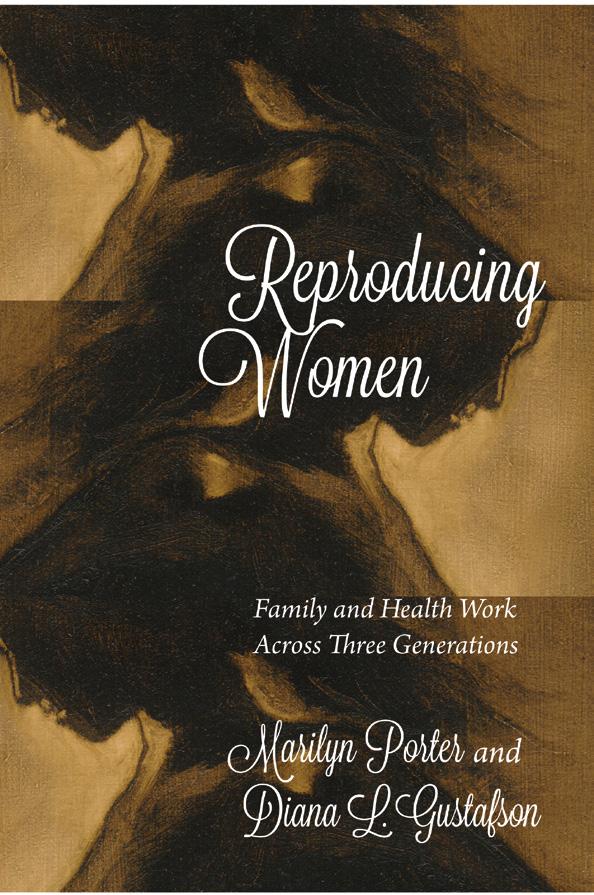
Using a political economy framework, Loeppky emphasizes the transitions to capitalism of industrial states — particularly the United States, Canada and Germany — as a critical point of development that conditions their contemporary handling of biomedical production and health. Paperback • 9781552665190
by Diana L. Gustafson and Marilyn Porter
How do women experience reproductive health? How is knowledge about health issues transmitted from one generation to the next? Utilizing sociological and feminist lenses, Reproducing Women argues that women experience reproductive health as a part of their entire life story, rather than as discrete medical “problems.” Drawing together stories and interviews with three generations of women across twenty-four families, this book examines women’s experience of their “reproductive lives” in order to uncover how women’s experience is rooted in the family and among generational relationships: between mother, daughter, grandmother and granddaughter. By placing women’s biological and embodied experiences, including issues such as menarche, contraception, sexual intercourse, childbirth and menopause, in a social and cultural context, women’s broader roles in “social reproduction” are revealed.


Paperback • 9781552664711
$18.95 • January 2012
6 x 9" • 112 pp • Rights: World
by Marion Stordy
It is beautifully written. The narrative with which it begins is honest and compelling. The author uses her own personal experiences to set the stage and draw the reader into an insightful and impressively coherent Foucauldian analysis of the adhd label … that I suspect will make Foucault accessible, possibly for the first time, to many readers.
—dorothy Pawluch, Sociology, McMaster University
The number of children labelled adhd (attention deficit hyperactivity disorder) has been on the increase since the term entered common medical parlance thirty years ago. Through a deeply personal narrative and an analysis of Michel Foucault’s theories on truth, power and knowledge, The Ancient Mariner Speaks argues that the adhd label has contributed to the pathologizing of children’s, particularly boys’, behaviour and the further marginalization and exclusion, rather than inclusion, of students in the classroom.

Paperback • 9781552664179
$19.95 • April 2011
6 x 9" • 126 pp • Rights: World
by Jennifer Poole
Recovery has taken the mental health world by storm. In clinics, hospitals, community organizations and governments across North America and Europe, recovery rhetoric is everywhere. Its message of hope is catchy, its promise of wellness long overdue and its claims (somewhat) substantiated. But where did this new vision for mental health come from and what does it really mean for a system long unbalanced? Focusing on Ontario’s mental health communities, the book is the first to take a critical look at recovery’s talk and texts. Using Foucault’s analyses of discourse, it is also the first to go behind recovery’s rhetoric of hope and responsibility, re-theorizing mental health recovery in Canada.


Paperback • 9781552663981
$21.95 • September 2010
6 x 9" • 336 pp • Rights: Canada
edited by Yantra Bertelli, Jennifer Silverman and Sarah Talbot
In lives where there is a new diagnosis or drama every day, the stories in this collection provide parents of “special needs” kids with a welcome chuckle, a rock to stand on and a moment of reality held far enough from the heart to see clearly. Featuring works by “alternative” parents who have attempted to move away from mainstream thought — or remove its influence altogether — this anthology, taken as a whole, carefully considers the implications of parenting while raising children with disabilities. From professional writers to novice storytellers including Robert Rummel-Hudson, Ayun Halliday and Kerry Cohen, this assortment of authentic, shared experiences from parents at the fringe of the fringes is a partial antidote to the stories that misrepresent, ridicule and objectify disabled kids and their parents.

Paperback • 9781552664094
$21.00 • February 2011
6 x 9" • 136 pp • Rights: World
by Ross Sutherland
When your doctor takes a blood sample for analysis, where does it go? Does it find its way to your local, publicly owned hospital? Does it take a longer journey to a private, for-profit lab in the next city? Chances are, you’ve never given it a lot of thought. In this daring exposé of the laboratory system, Sutherland investigates its historical and contemporary development in Canada and argues that the landscape has been heavily influenced by the private, for-profit companies — to the detriment of the public health care system.


$18.95 • April 2010
6 x 9" • 144 pp • Rights: World
by Heather Kuttai
Heather Kuttai is a 40-year-old white, heterosexual woman. She is married and is the mother of two children. Living in a quiet, middle-class neighbourhood, her life is, in many ways, seemingly the quintessential picture of what many consider to be traditional. However, her life is not as conventional as it appears: she is a paraplegic and uses a wheelchair for mobility. Her disability dramatically changes the picture. Much of the writing about the experiences of women and mothers excludes the stories of women with disabilities. Established norms dictate that a mother’s body be “healthy” and “whole.” Because the body with disabilities is often seen for what it cannot do, taking on the role of mother can give the body a different value, status and worth. Heather’s experiences as a woman with a disability experiencing pregnancy and childbirth offers insights into what is already known about women’s bodies. The stories she tells of her life, her pregnancies and giving birth illustrate both her self-awareness and her awareness of our society’s negative perceptions of disability.
From the epilogue:
I do not know if I am always happily indifferent to the ones who have consistently been wrong about me, but I do know that I strive to be. Some days I get it right.
Other days I struggle. The autoethnographic process has made me realize that I am living an extraordinary life and that I have a body worth celebrating. My body has done, and continues to do, incredible things. The lack of expectations that surrounded me as a woman with a disability were not ones I had to necessarily live with. I am an agent. It is hard work. But it is good work.

$21.00 • August 2009
6 x 9" • 128 pp • Rights: World
by Tania Das Gupta
Most nurses of colour experience everyday forms of racism, including being infantilized and marginalized. Most reported being “put down,” insulted or degraded because of race/ethnicity/ colour. A significant proportion of nurses, non-white and white, report having witnessed an incident where a nurse was treated differently because of his/her race/ethnicity/colour.
These are only some of the conclusions that author Tania Das Gupta arrived at as a result of her survey of 593 Ontario Nursing Association members. Within the framework of the political economy of health care and drawing from the findings of her research, the author develops an intersectional theoretical framework that helps us understand how racism happens and provides a base from which nurses and other workers can fight racial harassment. This book shows how systemic racism persists in the workplace. It shows how fear, lack of support, management collaboration, co-worker harassment and ineffective institutional responses make it difficult for victims of racism to fight back.
2970 Oxford Street Halifax, NS, B2L 2W4 phone (902) 857-1388 info@fernpub.ca
Fernwood works as a guest on unceded Indigenous lands; specifically, we create from Kjipuktuk in Mi’kma’ki, colonially known as Halifax, Nova Scotia, the territory of the Mi’kmaq, as well as in Winnipeg, Manitoba, the original lands of Anishinaabeg, Cree, Oji-Cree, Dakota and Dene peoples, and the homeland of the Métis Nation, which in 1871 became Treaty 1 territory.
As settlers working in publishing, we have a responsibility to understand and challenge the Canadian state’s history of racist and colonial writing and publishing practices, including the erasure of Indigenous knowledges, the ongoing systemic undermining of oral history and knowledge, and land theft. We dedicate ourselves to respectful collaboration with Indigenous communities in producing critical books.
Fernwood Publishing Company Limited gratefully acknowledges the financial support of the Government of Canada, the Province of Manitoba, the Province of Nova Scotia and the Canada Council for the Arts.
You can access the entire list of titles in print from Fernwood and Roseway via our website at fernwoodpublishing.ca. Please note that prices in this catalogue are subject to change without notice.
University of Toronto Press Distribution
5201 Dufferin Street, Toronto, ON, M3H 5T8
tel: (416) 667-7791
toll-free: +1 (800) 565-9523
e: utpbooks@utpress.utoronto.ca
For any queries relating to ordering, accessing or availability of our books, please visit fernwoodpublishing.ca/ordering, or send us an email to orders@fernpub.ca
Institutional Bookstores can place orders directly with UTP distribution. Please email utpbooks@utpress.utoronto.ca.
Ampersand Inc.
ampersandinc.ca
toll-free: (866) 849-3819
toronto office
tel: (416) 703-0666
321 Carlaw Ave, Suite 213 Toronto, ON, M4M 2S1 Canada
Vancouver office
tel: (604) 243-5594
2440 Viking Way Richmond, BC, V6V 1N2 Canada
ebooks can be purchased from
▶ Fernwood Publishing website
▶ Campus eBookstore and Vital Source
▶ Indigo Books, Amazon, Kobo, OverDrive, Google Play and more
▶ Licensed ebooks available on Les Libraires
interested in select chapters?
Write to us at permissions@fernpub.ca
Central Books Ltd
50 Freshwater Road, Chadwell Heath, London, England, RM8 1RX
tel: +44 (0) 20-8525-8800
e: orders@centralbooks.com
Columbia University Press / Ingram Publisher Services
For more information about exam copies and institutional orders, please contact your Columbia University Press sales representative, or visit cup.columbia.edu/for-instructors.
southeast: catherine hobbs tel: (804) 690-8529
e: ch2714@columbia.edu
northeast: conor broughan tel: (917) 826-7676
e: cb2476@columbia.edu
midwest: kevin kurtz tel: (773) 316-1116
e: kk2841@columbia.edu
west: william gawronski tel: (310) 488-9059
e: wgawronski@earthlink.net
brad hebel
tel: (212) 459-0600, Ext. 7130
e: bh2106z@columbia.edu
We will provide examination copies of our books for consideration as course texts. Please include the course name, expected enrollment and expected date of adoption in your exam copy request. We will email your exam copy unless you specify that you need a paper copy. We reserve the right to limit print versions of examination copies and/ or to provide them on a pre-payment basis. For an examination copy, please contact us at examrequest@fernpub.ca.

contact our office
2970 Oxford St, Halifax, NS, B2L 2W4 tel: (902) 857-1388 info@fernpub.ca